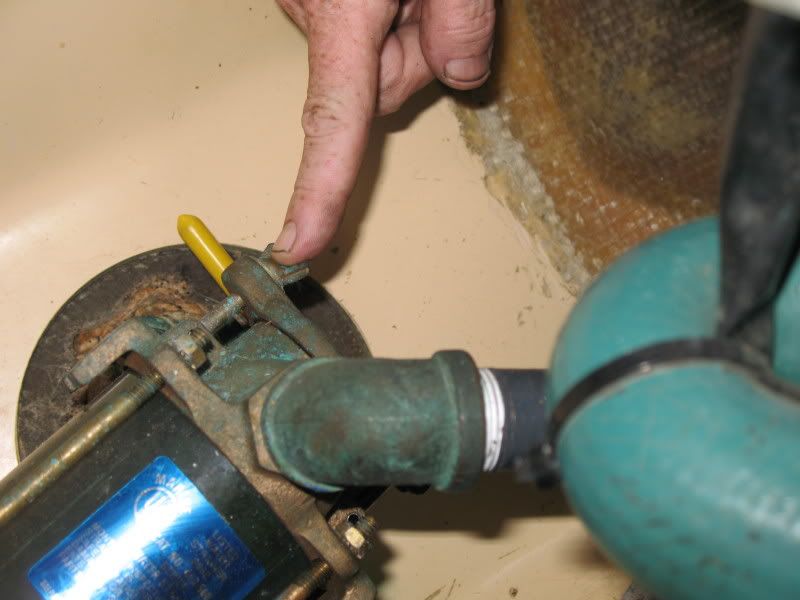I understand: You're not taking them out of the boat. I'm just not sure how you can lubricate them without doing that (?)
Here is another info sheet. Again, geared towards the boat being out of the water, but I still think it might be helpful for you to look at. These are Spartan seacocks which are similar to yours but with bronze cones instead of rubber.
http://spartanmarine.com/source/27.htm
Also, do you have Nigel Calder's "Boatowner's Mechanical and Electrical Manual"? I may not agree 100% with him on everything, but I still wouldn't own a boat without his book on hand.
Tons of good information and very clear drawings. Your exact Groco rubber-plug seacocks are shown in an exploded diagram on page 566 of the third edition.
Re-familiarizing myself with it now, I don't see any way to "lube the handle" without taking the seacock apart. That's because what the handle does is turn the plug, so stiffness would be caused by the plug being swollen or needing grease. That's the part you have to maintain by removing the plug (and unless you're bold/confident, having the boat out of the water.) That is, there are ways to do it with the boat in the water (plug the through hull from the outside, etc.; but going by what you're saying, I don't see you wanting to do that this time around.
Is it possible the rubber plugs are over-tightened? This can make the handle hard to turn. You could loosen the handle that "balloons" the plug as long as you don't make it start to drip.
One note, from the book, is that "these seacocks are not suitable for applications where chemicals may be present (e.g. toilets and sinks). The rubber will swell, jamming the bung and making it next to impossible to turn [the handle]. You can salvage a bung that has swelled by filing down the excess rubber with a coarse wood file or a belt sander."
So perhaps your rubber plugs have swollen from some contact with chemicals.
By the way, "trailer hitch grease" is probably white lithium grease. I'm not sure if that's what we used - just can't remember. I see that Spartan has their own proprietary grease. I feel like I read some discussion of what the various people use on the Spartan seacocks on the Cape Dory board last year (I had a bunch of Spartan seacocks that I was thinking of using on my boat, so I was reading about them). I think people used something like "red dot" grease, but just can't remember the details. (Not saying white lithium is incorrect - but just be sure whatever it is won't hurt the rubber cones.)
Rachel
